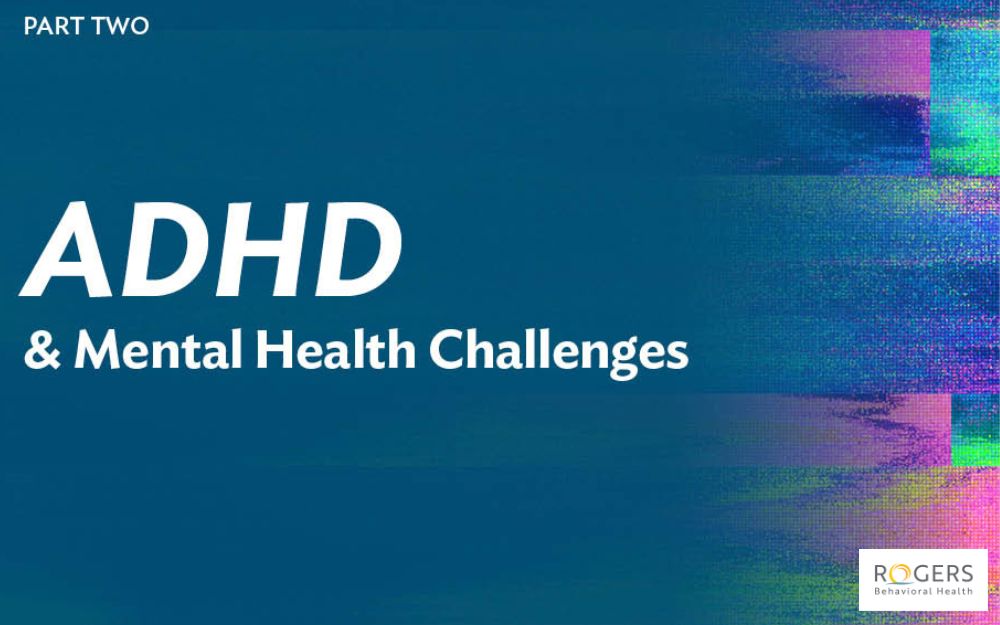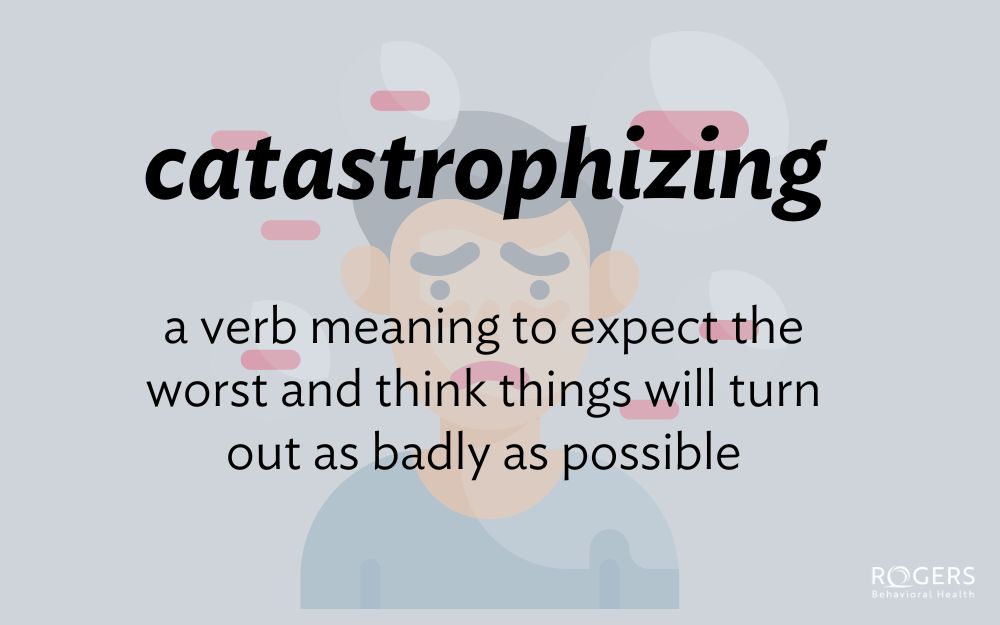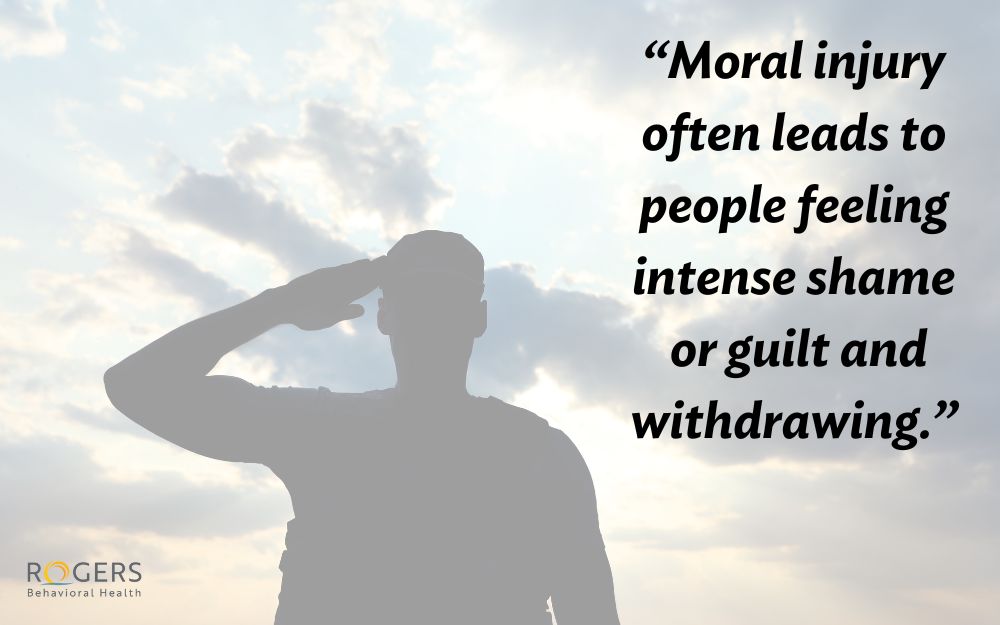When to refer – Anxiety in schools podcast
Podcasts are not supported in Internet Explorer. Please use an alternative browser such as Google Chrome.
Transcript
Melanie Cole (Host): Hello. I'm Melanie Cole. Welcome to Anxiety in Schools, a special podcast series from Rogers Behavioral Health. This is episode number six of our six-part series where we look at anxiety and how it can impact learning. In this episode, we’re discussing when to refer and resources available to help with anxiety in schools. I’d like to welcome Dr. Heather Jones. She's a clinical supervisor at Rogers Behavioral Health. Dr. Jones, please tell us what works and what doesn't work for therapy in your opinion. What have you seen that does work?
Heather Jones, Ph.D.: So the most evidence-based treatment for anxiety disorder is exposure therapy. What we're asking people to do, which seems a little counterintuitive, is to actually continually and repetitively expose themselves to the anxiety-provoking stimuli. In school, that might look like having someone take a look at one of those bubble forms that we fill out when we take exams, or to look at an assignment that they feel overwhelmed or very anxious by. It might mean that we're going to ask a student who's pretty anxious about sitting in the high school cafeteria to sit in the high school cafeteria during their lunch period and maybe another lunch period. Again, this seems a little counterintuitive, but the research behind that is that we're actually teaching people that their anxiety isn't dangerous, that although it feels very overwhelming and it feels like something bad is going to happen, that's kind of a false alarm that's going on in our head, so to teach people that they actually have control over a situation, even though their anxious.
Melanie: How can somebody find someone that they know will help them and that they're doing to effectively treat anxiety? How do you find the proper person?
Dr. Jones: Absolutely, so we ask people to talk to an outpatient provider, ask them first if they are a provider that specializes in cognitive behavioral therapy. Exposure therapy is a type of cognitive behavioral therapy and secondarily to that to talk to them more, especially if we’re talking about an anxiety disorder, like obsessive-compulsive disorder, to make sure that they know what exposure and response prevention is so they are knowledgeable about this type of treatment. We usually recommend the parents to ask these tough questions of people and to make sure that they know and have heard of exposures and, secondary to that, that this treatment should look different than what people are used to when they think about going to an outpatient therapist or an outpatient psychologist. This should be very behavioral in nature in that we are doing things, we are approaching anxiety-provoking stimuli, we are doing the things that make us anxious and it's not that we're sitting and talking about what those things are, so it's very heavily behavioral.
Melanie: How important is it for early identificationand what are some of the red flags or symptoms that would differentiate anxiety from other commonly occurring disorders?
Dr. Jones: So it is really important. What we tend to see is that early anxiety goes unnoticed and is explained away as just normal stress at school or around the time of exams and everybody is experiencing it. And then what happens is, through avoidance over time, people's anxiety and student's anxiety become insurmountable and they feel as if they can't go to school, they can't take exams, they can't go to class, and so responding early is important and at the same time can be difficult. So looking for any significant change in behavior, so your child or your student was coming to class every day, was completing work, and then starts to maybe miss a class or complain of some somatic symptoms – a stomachache, a headache – not coming to class on exam days, so those would be things that I would be looking for, some signs that there is some anxiety there.
Melanie: What do you think is important as far as parent education on anxiety? How are they treated and give us some effective management strategies that parents can use at home if their children are suffering from anxiety?
Dr. Jones: The most important thing that we talk about in terms of parent education is symptom accommodation, being able to recognize what you are doing for your child when they're anxious or how you as a parent or even a teacher responds when a child is anxious. Since exposure therapy is so counterintuitive, people usually see someone who is anxious and say ‘Oh, I need to help them, I need to do something to help them cope with this or to feel better,’ and that inadvertently actually reinforces someone’s anxiety. It sends the message that there is something to be afraid, that this is serious, that I can't handle this on my own. And so we talk to parents about setting expectations – reasonable expectations – about school attendance, completing school work and then really asking them to look carefully at their behavior to ensure they're not inadvertently helping or assisting or reinforcing some avoidance related to that anxiety. So that can be a real challenge and really essential to that parent education piece.
So some strategies specifically that we would be looking at – and a lot of these are basic – but to look at sleep hygiene. When is your child going to bed? Do they have video screens in their bedroom? Do they have a computer in their room? Do they have a cell phone? Do they have a TV? Is that impacting their sleep hygiene? How many hours are they spending on schoolwork?
Perfectionism and that school stress is so prevalent, so we’re asking schools and parents to come together and say how many hours is too many hours? Are you perfecting your schoolwork and to ask parents to take a serious look at those things.
Melanie: What do you think the schools need to do, Dr. Jones, in order to develop, implement and monitor effectiveness or interventions within the school setting?
Dr. Jones: So we talk about doing some parent education. We talk to schools about coming up with some exposure ideas. Maybe if someone is really struggling with sitting in the cafeteria to sit for five minutes to work together with the school counselor or school psychologist to support them in doing the things that are anxiety provoking to them. Specifically, we ask that people track their “safety behaviors,” behaviors that I'm doing to avoid my anxiety or to help myself cope with anxiety, so avoiding going into the cafeteria, tracking how many times I'm perfecting my homework or rewriting a paragraph to make sure it's just right, and we have people track them in order to do two things: one, to increase awareness about how much anxiety is impacting my behavior and then secondarily to that, to reinforce ourselves when we're able to resist those times and to allow that paragraph to be just okay, and then, of course, to enlist the help of the school counselors or school psychologist to do functional assessments in order to check and see what the function of that behavior is, whether it is anxiety, to ask the student what prevented them from going into the cafeteria and then how that avoidance actually increased over time because they have been avoiding that anxiety-provoking stimuli.
Melanie: When would referral be necessary? When would you advise the schools or parents to look for a specialist and how they can find somebody who specializes in cognitive behavioral therapy and other practices?
Dr. Jones: So it's challenging with adolescents especially because any sort of change in emotion or behavior is almost constant, and so but really to look at a significant change over time and I mentioned this already. Grades start slipping, there's some avoidance of school, of missing school, not turning in assignments…Maybe your child used to have dinner with the family and is not asking to have dinner in their room by themselves, an increase in somatic symptoms – headaches, stomachaches and things like that. Any sort of culmination of that and I would encourage parents to use their judgment – they know their child best and they know when things just don’t seem right. And in addition to that, to be willing to ask difficult questions, to be able to ask “How you are doing?” and “How are you handling all of the stresses of school right now?” and “Do you feel overwhelmed a lot?” in order to get a better sense of where they are.
Melanie: Do you have some resources you'd like to recommend to the listeners?
Dr. Jones: I do. There are several organizations that are very helpful and that we refer to parents often. The Anxiety and Depression Association of America is www.adaa.org. The International Obsessive-Compulsive Disorder Foundation is www.ocfoundation.org. Both of those organizations have “Find a Provider” links and are able to help people find someone who specializes in cognitive behavioral therapy. And there's a website that is put out by the Anxiety Disorders Association of British Columbia at www.anxietybc.com. This is great – it has a lot of resources for parents and resources for kids of all ages, so younger kids and teenagers, so it can be a really helpful resource. So if you're not having a conversation directly with your child to refer them to the site and they can search around on their teen site.
Melanie: Thank you so much for joining us. Great information. Rogers Behavioral Health is working each day to ensure that those with mental health challenges have access to the highest quality of care and most effective treatment available today. To learn more about the many ways Rogers can help children, teens, families, and schools, please visit rogersbh.org today. That's rogersbh.org. I'm Melanie Cole. Thanks so much for listening.



